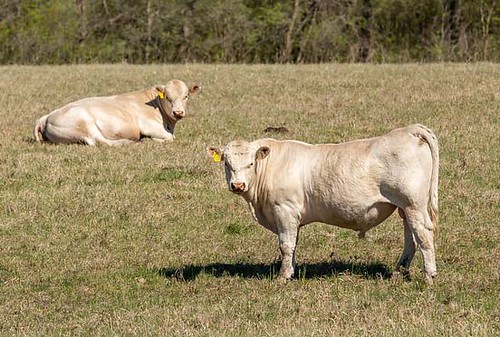Important to check bulls ahead of every breeding season
Oftentimes beef cattle producers test yearling bulls before turnout, but mature bulls need to be tested too.
April 20, 2022

Whenever there is an important job to do, a little preparation goes a long way to a successful outcome. And for bulls with the job of breeding females, it is important to make sure they are fit before turnout, says Kansas State University veterinarians.
"It is important to check the bull ahead of every breeding season because if he isn't where he needs to be in terms of physical condition and sperm quality, then producers will end up with a bunch of open cows at the end of the season," says veterinarian Bob Larson.
He says there are three elements to the exam:
Physical evaluation of the bull's feet and legs and musculoskeletal structure.
A close examination of the reproductive organs to include the penis and scrotum.
Semen evaluation for both motility and abnormalities.
"This is a pass/fail exam," Larson says. "Bull behavior is complex and hard to predict so we can't rank bulls on fertility until the calves are born and we see how many cows they bred."
Oftentimes beef cattle producers test yearling bulls before turnout, but Larson and fellow veterinarian Brian Lubbers agree that mature bulls need to be tested too.
"There are a lot of things that can happen from one breeding season to the next in terms of disease and nutritional stress," Larson says. "Semen production is pretty sensitive to stressors."
Lubbers adds, "Injuries can occur and go unnoticed, which can lead to a decrease in semen production or issues with the musculoskeletal system."
Veterinarian Brad White says that with mature bulls, producers sometimes make the mistake of assuming the bulls are fit for breeding because they were in the past.
"Even though older bulls look okay, there are other factors that may have negatively influenced their semen production making them not suitable for breeding the cows," White says. "Annual breeding soundness exams for all bulls are important to the success of the operation."
To hear the full discussion on this topic, listen to the Beef Cattle Institute Cattle Chat podcast online.
Source: Kansas State University Research and Extension, which is solely responsible for the information provided, and wholly owns the information. Informa Business Media and all its subsidiaries are not responsible for any of the content contained in this information asset.
You May Also Like


.png?width=300&auto=webp&quality=80&disable=upscale)
